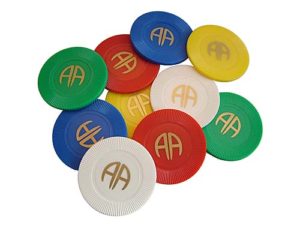Please note: For what they are worth, these comments represent Debbie’s opinions and perceptions based upon her own experiences and must be understood as such. Thank you…
 Al-anon is a resource for anyone who has a family member or friend who struggles with alcohol. Its program offers comfort and support for you when you have tried and failed to do something about another person’s drinking.
Al-anon is a resource for anyone who has a family member or friend who struggles with alcohol. Its program offers comfort and support for you when you have tried and failed to do something about another person’s drinking.
It’s a pretty interesting concept, really. It assumes that the alcohol problem is a family problem. It understands that the attitudes and behaviors of those of us who have an alcoholic in the family can change, and when they change all the other dynamics change too. It is a powerful and subtle tool to aid an alcoholic to recover.
I think the major thing that Al-anon provides is perspective. It helps you to look at things a bit differently and understand which part of the situation is yours…and what part is the drinker’s responsibility. It helps you control and calm the anxiety when you run out of options for what to do next.
 It helps you see how completely useless your past efforts may have been. And it helps you see in what ways you may be doing more harm than good. It helps you take an honest look at the situation. It helps you find the serenity and balance you need in order to discover what parts of the situation you can change. It is a way to stop prolonging the drinking and the agony.
It helps you see how completely useless your past efforts may have been. And it helps you see in what ways you may be doing more harm than good. It helps you take an honest look at the situation. It helps you find the serenity and balance you need in order to discover what parts of the situation you can change. It is a way to stop prolonging the drinking and the agony.
Do you think doing that takes courage? You bet it does. But Al-anon is a place to get the facts about your role in the sickness of alcoholism and find out how to impact your family’s recovery. You can also find a sponsor there, someone who can support you on a personal level while you struggle with all this.
 Al-anon helps you come to terms with the 3-C’s: You didn’t CAUSE it, you yourself can’t CONTROL it, and you can’t CURE it. But you CAN influence and enable the alcoholic to come to terms with what he needs to do to change. When that happens, you can make a profound difference by encouraging the alcoholic to reach out and ask for help. Al-anon can help you “get ready” for that moment and know what to do when it comes.
Al-anon helps you come to terms with the 3-C’s: You didn’t CAUSE it, you yourself can’t CONTROL it, and you can’t CURE it. But you CAN influence and enable the alcoholic to come to terms with what he needs to do to change. When that happens, you can make a profound difference by encouraging the alcoholic to reach out and ask for help. Al-anon can help you “get ready” for that moment and know what to do when it comes.
You can find Al-anon meetings on the web. They are available online, 24/7/365. Start at al-anon.org. Try it out. Go to at least 6 meetings. See what happens…dhc






